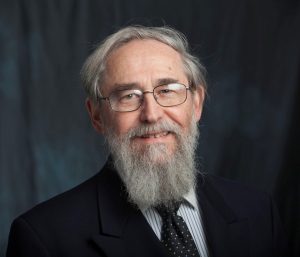 In 1965, Rabbi Saul Berman participated in and was arrested at the demonstrations in Selma, Alabama.
In 1965, Rabbi Saul Berman participated in and was arrested at the demonstrations in Selma, Alabama.
“I was arrested a number of times,” said Berman, an American scholar and Modern Orthodox rabbi. “I spent some time in prison in Selma, and spent time helping people to register to vote. And generally, I saw the attitude of the local population toward the black community at the time.”
Berman had traveled to Selma a week prior to the scheduled march with a group of four other rabbis.
“We were deeply aware of the threat that existed,” he said. “But I had a responsibility as a citizen, as a Jew and as a person committed to furthering justice in society, to be there. Many of the experiences I had while I was there led me to a much better understanding of the nature of race relations in this country and of the extraordinary capacity of people joining together to work for a just outcome.”
At 2 p.m. today, August 2, in the Hall of Philosophy, Berman will discuss evil in the world from the perspective of Judaism as part of the sixth Interfaith Friday of the season. Berman will be joined in conversation by the Rt. Rev. V. Gene Robinson, Chautauqua’s vice president of religion and senior pastor.
“Evil is a central problem that religions have been struggling with since the dawn of humankind,” Berman said. “The reason the struggle is so intense is that it goes through so many central aspects of who we are and what constitutes meaning in our lives. For example, the question of evil in the world goes to the core of the nature of our belief in God.”
That question, Berman said, essentially amounts to “how can God cause or allow evil to exist in the world?”
“That’s a fundamental struggle that we all have at moments of adversity,” he said. “It goes also to the question of how we understand the nature of free will. To what extent are humans asking to be responsible for their capacity for choice?”
But for his lecture today, Berman hopes to impart a sense of clarity.
“Ultimately, one of the things I’d like people to take away is a sense of personal responsibility that we each have to reduce evil,” he said. “It could be evil that we might be inadvertently causing ourselves, evil that might be caused by natural causes. In one of these areas, we as individuals have both the capacity and responsibility to reduce evil and to increase goodness in the world.”
One of the key ways Berman said that the nature of evil in the world has changed since his participation in the Selma demonstrations is its impact on nature.
“We humans are directly impacting on the natural order in such a way as to produce an extraordinarily evil result,” he said. “We are pouring poison into water, we are producing the kinds of gasses and emissions that change the weather. We bear responsibility for that.”




